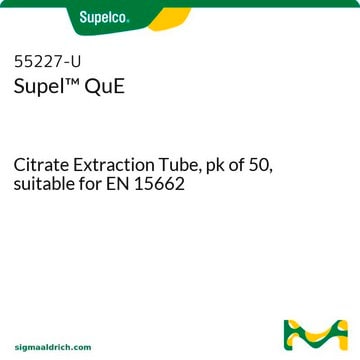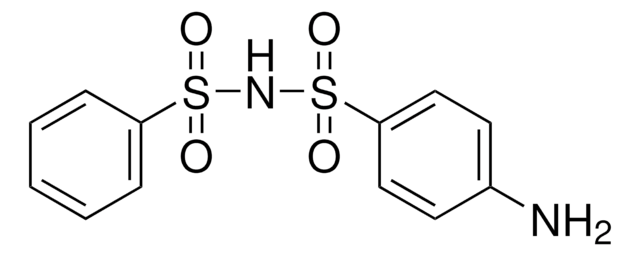35915
Sodium dichloroisocyanurate dihydrate
98.0% (AT)
Sinónimos:
NaDCC, Dichloroisocyanuric acid sodium salt dihydrate
About This Item
Productos recomendados
Quality Level
assay
98.0% (AT)
reaction suitability
reagent type: oxidant
impurities
~0.5% free chloride
SMILES string
[Na+].[H]O[H].[H]O[H].[O-]C1=NC(=O)N(Cl)C(=O)N1Cl
InChI
1S/C3HCl2N3O3.Na.2H2O/c4-7-1(9)6-2(10)8(5)3(7)11;;;/h(H,6,9,10);;2*1H2/q;+1;;/p-1
InChI key
PYILKOIEIHHYGD-UHFFFAOYSA-M
¿Está buscando productos similares? Visita Guía de comparación de productos
Categorías relacionadas
General description
Application
signalword
Danger
hcodes
Hazard Classifications
Acute Tox. 4 Oral - Aquatic Acute 1 - Aquatic Chronic 1 - Eye Dam. 1 - Skin Corr. 1A - STOT SE 3
target_organs
Respiratory system
supp_hazards
Storage Class
4.1A - Other explosive hazardous materials
wgk_germany
WGK 2
flash_point_f
Not applicable
flash_point_c
Not applicable
ppe
Eyeshields, Gloves, type P3 (EN 143) respirator cartridges
Elija entre una de las versiones más recientes:
¿Ya tiene este producto?
Encuentre la documentación para los productos que ha comprado recientemente en la Biblioteca de documentos.
Los clientes también vieron
Nuestro equipo de científicos tiene experiencia en todas las áreas de investigación: Ciencias de la vida, Ciencia de los materiales, Síntesis química, Cromatografía, Analítica y muchas otras.
Póngase en contacto con el Servicio técnico














